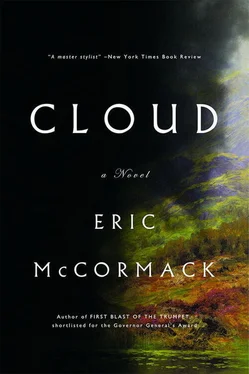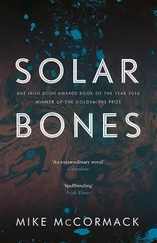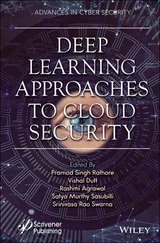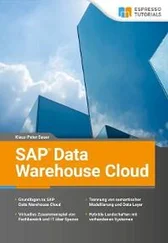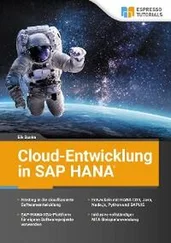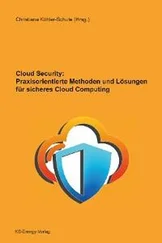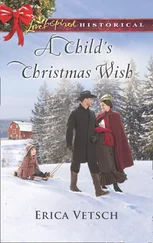The address was written in pen and was barely legible. I was amused at the thought of Soulis in his tower, his desk vibrating from the chimes of that great clock above him as he tried to write. Fortunately, the letter inside the envelope was typed and was accompanied by several other pages, which seemed to have been photocopied. I began reading.
Dear Mr. Steen:
Let me begin by saying again what a pleasure it was to meet you, and by reiterating how grateful I am to you for having entrusted The Obsidian Cloud to us here at the National Cultural Centre. This letter is to bring you up to date on the results of our research since we met.
I have some rather exciting news, so I thought I’d communicate the details to you without delay.
As I intimated when you were in Glasgow, the major focus of our research would be to identify the author, Macbane. That task has been much more time-consuming than in many cases we encounter. My new assistant, Jean Murdo, and I had spent many hours poring over old book catalogues, journals, and newspapers but could find no reference to Macbane or to The Obsidian Cloud. We’d even looked up the Rev. K. Macbane in numerous registries of Scottish clergy from throughout the country. As I reported to you on your visit, we had no luck whatever.
Since then, Jean and I checked all available Registers of Birth. You may not be aware that till the middle of the nineteenth century in Scotland, many births went unrecorded. This is a major problem for the researcher. Nonetheless, we were hopeful we might find our author’s name somewhere in one of the many registers, especially Old Parish Registers, which, though they’re by no means comprehensive, are our best resource.
But even these registers present additional, chronic problems for the researcher: the handwriting can often be illegible and the spelling of names tends to be quite haphazard, depending on the whim of the Registrar— spelling in those days was not at all standardized.
Knowing this, we included in our search such variant spellings as Macbeane, Macbayne, Macbyne, MacVaine, and so on. To our chagrin, after we took the diverse spellings into account, we ultimately came across hundreds of possible candidates.
Using all sources at our disposal (census results, military lists, etc.), we were able to eliminate quite a number of them — some had died either at birth or quite young from disease, or as soldiers in various wars, or had emigrated to Australia or Canada where they’d disappeared from the records. As far as most of the others were concerned — farmers, shepherds, carpenters, doctors, etc. — we followed up on them to the extent we were able, but could find no information whatever to indicate they might be authors on the side. Though, of course, any one of them might have been our man.
We were beginning to think we’d exhausted all avenues. Then, by the purest chance, we found what we’d been searching for all along.
Jean Murdo deserves all the credit. She, like myself, had been quite captivated by The Obsidian Cloud and had often talked to her husband about it and about our hunt for the elusive Macbane. Now Jean’s husband happens to be a barrister in a big law firm here in Glasgow, and when he came home from work just a week ago, he had surprising news for her.
Shortly before finishing for the day, he’d been searching for legal precedents regarding some matter his firm was involved in. He’d been obliged to consult the multi-volumed reports of Scottish court cases over the centuries. These books are usually written in such dry legalese that no one else can stomach them, except lawyers.
Jean’s husband had been skimming through Volume VI of the mid-nineteenth-century Scottish Law Reporter, which consists of brief outlines of the facts in many of the legally interesting cases of the day, with a few notes on the judgments and their significance.
The title of one particular case quite unrelated to his own research just happened to catch his eye.
He glanced over the case and immediately realized its potential significance for Jean. So he photocopied the pages in question and brought them home to her. I’ve recopied the salient pages for you here. I suggest you refer to them now before reading the rest of this letter.
This sounded so exciting, I immediately did as he said. The photocopied pages were a little smeared and blurry, being copies of copies of a much-handled and ancient tome. But their contents were vivid and startling.
THE CROWN V ISABEL MACBANE AND ROBERT LEANIE
At the session of the Edinburgh Assizes held in the summer of 1866, Isabel Macbane (née Leanie) and Robert Leanie, her brother, were arraigned for the domestic murder of Macbane’s husband, Revon Kenelm Macbane.
The Attorney General, who prosecuted the case himself, was satisfied from the evidence laid before him that he should prefer differing charges for the respective roles the accused played in the murder. Robert Leanie was therefore charged with the act of delivering the mortal
wounds with a carving knife. Isabel Macbane, who was at the scene, was charged with “art and part,” known in English law as “aiding and abetting.”
Upon their arraignment, the prisoners refused to plead.
The trial proceeded before a jury, with Justice Alexander Weir as presiding judge. He entered a plea of not guilty on behalf of the prisoners, as is customary when accused persons refrain from cooperating.
Various witnesses were called to give evidence. It was established that the victim of the crime, Revon Kenelm Macbane, who had been educated in the parish school, was a clerk in the office of the Kilcorran coal mine. Isabel Macbane, to whom he was married for five years, was a farmer’s daughter.
On the evening of June 12, the aforesaid Isabel Macbane entered her domicile in the company of her brother, Robert Leanie, a farm hand. They approached her husband, Revon Kenelm Macbane, who was writing in his papers at the parlour table, whereupon Leanie did intend to stab him to his death, in an act of murder with the assistance of Isabel Macbane. Which murder they duly did perform. The corpse having been mutilated further, the two accused did set about to burn all books and papers in the domicile. Thereafter they fled to England where they were arrested as they attempted to board the Dover packet for Calais.
Thus, the case against Robert Leanie and Isabel Macbane having been presented, Justice Weir attempted to question
the accused. They did remain silent, jointly refusing a response.
Justice Weir then directed the jury, lacking any reason to do otherwise, to return a verdict of guilty: Robert Leanie of murder, Isabel Macbane of art and part, as being his accomplice and inciter in the act. The verdict having been so returned, Justice Weir subsequently donned the black cap and pronounced sentence of death by hanging. The prisoners were to be held for one week then to be executed upon a gallows erected in the town centre of Kilcorran, near the domicile where the crime occurred.
…
At the 1866 Michaelmas Assembly of Justices held in Edinburgh at the Chief Justice’s chambers, consideration was being given by the Assembly to the better preventing of the horrid crime of husband-murder.
The Chief Justice alluded to the prevalent and traditional method used by Scottish wives in husband-murder, viz. the administering by said wives of covert doses of strychnine, causing the victims’ certain deaths, slow and painful. The Chief Justice recalled that in previous eras, judges were given latitude in imposing penalties suited to crimes in order for the deterrence of similar offences by others.
Читать дальше
